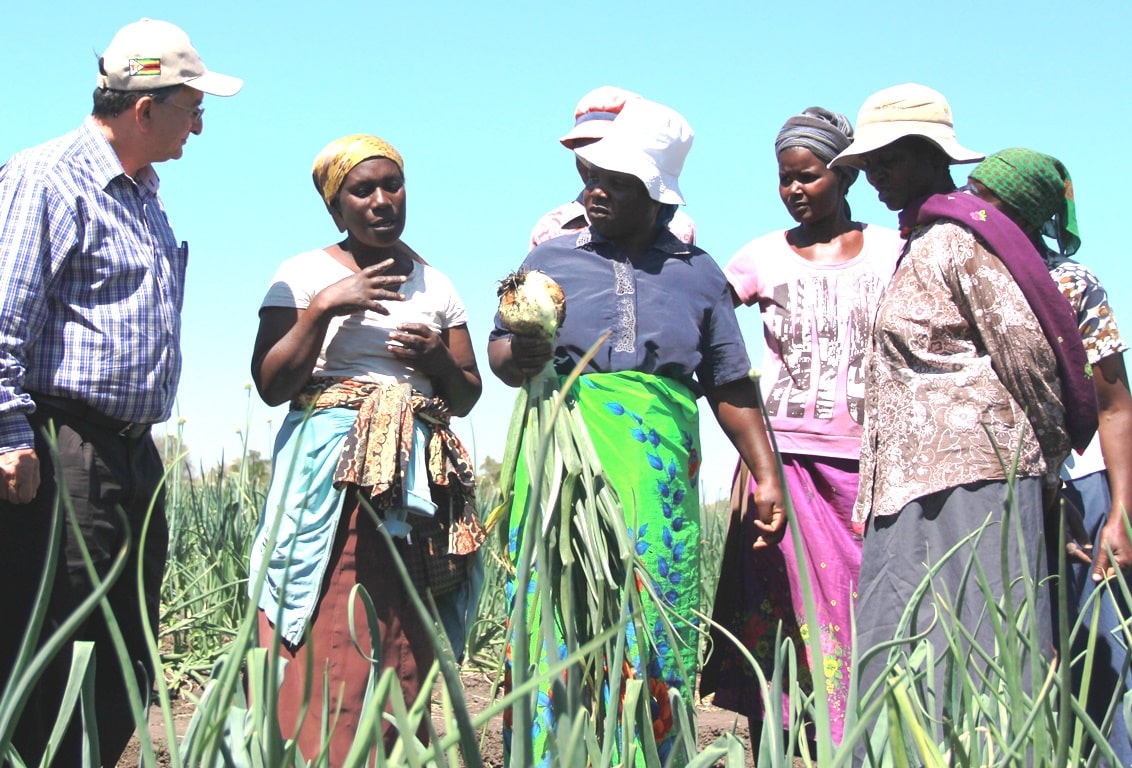By Byron Mutingwende
I write this piece to acknowledge one of those unsung heroes in the diplomatic, humanitarian and development field in Zimbabwe. I must hasten to note that he was recognised as the diplomat of the year in 2016 by the Diplomat Trust of Zimbabwe.
His energetic and engaging personality precedes him. I am sure many in the media fraternity in Zimbabwe and beyond have had their encounter with Mr Bishow Parajuli, the United Nations (UN) Resident Coordinator. His unassuming demeanour masks his mammoth responsibilities as the most senior UN Official in Zimbabwe. He recognises and calls by name every active member of the press who have been covering development issues.
Under the leadership of Mr. Parajuli, the United Nations has provided support to Zimbabwe not only to resuscitate decades of economic, social and political decline but also to put the country on the path to socio-economic and democratic transition.
Thanks to commitment of Mr Parajuli on promoting peace, justice and independent institutions in Zimbabwe, the forthcoming elections constitute a key plank on the country’s path to recovery and have the potential to spur much needed economic take off.
Under the leadership of Mr. Parajuli, the United Nations System in Zimbabwe continues to support national strategic investment efforts to enhance the country’s democratic, social and economic governance.
I have come across latest development reports showing that from January 2016 to end of March 2018, the United Nations has delivered USD 931 million in a form of different development projects and programmes. This is in line with the United Nations commitment under the 2016 – 2020 Zimbabwe UN Development Assistance Framework (ZUNDAF) which aims to mobilise USD 1.6 billion in support of different development programmes in the areas of social services, HIV, poverty reduction, food security, nutrition, governance and gender equality in Zimbabwe.
Together with many fellow journalists, I have had the opportunity to first-hand witness UN supported programmes and projects in the remotest and marginalised parts of the country. Mr Parajuli has always been open, frank and very close friend of the media and communities in those off-tarmac areas showcasing the focus and good intention of the United Nations providing catalytic support to Zimbabwe’s democratic, economic and social recovery efforts.
Thanks to the regular engagement and open door policy of Mr. Parajuli, I have learned the operational scope of the United Nations and its expressed role as a neutral, impartial, and independent partner bringing together government officials, political parties, traditional leaders, donors, civil society, communities and the media to define common agenda in Zimbabwe along the sustainable development goals.
When it comes to democratic process in the country, Mr. Parajuli has been consistent in his message on insisting that the United Nations role has been to support the capacity of the Zimbabwe Election Commission like the support provided to the other equally important independent institutions: Zimbabwe Human Rights Commission; National Peace and Reconciliation Commission; and Gender Commission.
I am equally aware that the United Nations, the European Union, and the Embassy of Sweden, do support the capacity building of Parliamentarians to enhance the legislative arm of the Government. Continued support has also been provided to the Government in Administration of justice, human rights and public administration. For example, Zimbabwe participated in the Universal Periodic Review on human rights, with over 151 recommendations accepted and action plans rolled out by the Government for implementation.
He has been consistent on the emphasis that the quality and outcome of an election like any national development outcomes is the responsibility of national authorities and the people of Zimbabwe. The credit for successful elections belongs, first and foremost, to national actors, including ZEC, Parliament, political parties, the media, civil society and an engaged citizenry; all of whom have vital roles to play in ensuring a successful process.
From my encounters in covering development programmes, I understand, the United Nations engagement in Zimbabwe is mainly on building and strengthening national capacities to achieve economic and social development as well as supporting the country to fulfil its international obligations, such as the Sustainable Development Goals.
Therefore, it is my strong belief that a politically stable and open Zimbabwe, led by popularly elected leaders in a “free, fair, open and transparent” elections falls squarely on Zimbabwean institutions such as Government, ZEC, the Media, the political actors, and the citizens, particularly those who have registered to vote. The United Nations and other cooperating partners cannot be expected to do our homework. They are just partners to support and their support should be appreciated, not trivialised.
As we enjoy a growing media space particularly in digital and social media s, let’s us enhance the quality of public dialogue to empower people with information particularly in the rural areas. We have a moment to make and write our history by mobilising our people through increasing awareness and promoting constructive public engagement across political, religious, racial and ethnic lines. After all, we are all Zimbabweans and the country belongs to all of us equally.
By helping our people to ask the right questions and to look for answers; we can open those democratic spaces for a more people centred inclusive, transparent, accountable and sustainable development.
Let’s continue to engage renowned leaders in international diplomacy and development like Mr. Bishow Parajuli who are always ready to engage and support so that we are able to define a positive and hopeful national narrative for our people and make Zimbabwe the beacon of hope, peace and prosperity.






